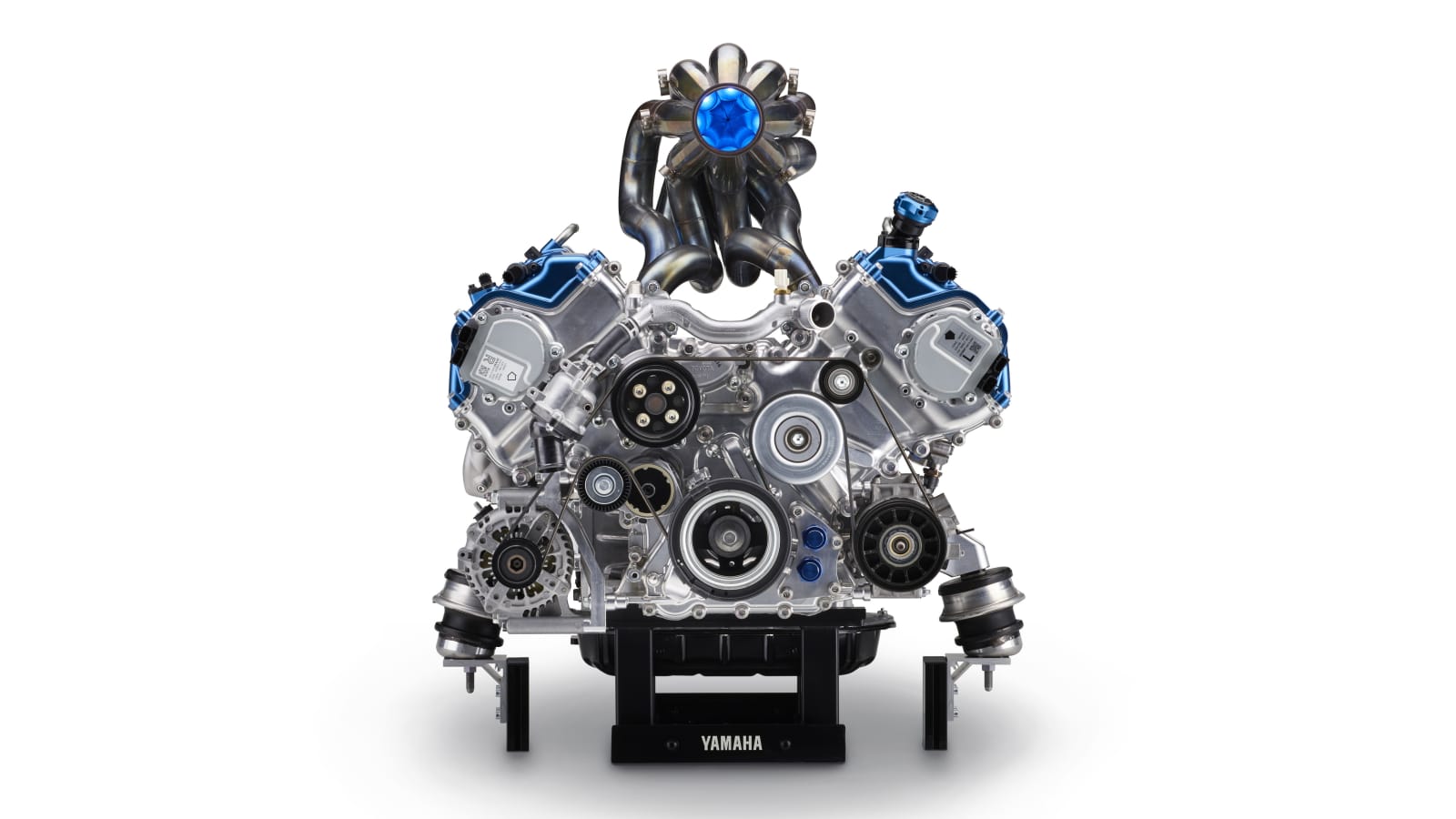History is proof that when Toyota and Yamaha team up to build an engine, the result is wildly cool. The Lexus LFA’s V10 was a shared effort between the two, and it’s still arguably the best-sounding production engine ever made. Today’s news concerns another engine developed between Toyota and Yamaha, but this one runs on hydrogen.
Yes, it’s weird. This engine is a 5.0-liter V8 that is designed to run on hydrogen, not gasoline. The engine being developed by Yamaha starts out life as the 5.0-liter V8 found in cars like the Lexus IS 500 F Sport Performance, RC F and others. Then, Yamaha makes modifications to the injectors, cylinder heads, intake manifold “and more.” As of now, Yamaha doesn’t seem keen on revealing all its secrets, but at least we know this is happening.
Power from this hydrogen-powered engine isn’t far off the figures Lexus is able to achieve with old-fashioned gasoline. When run on hydrogen, Yamaha claims 455 horsepower (at 6,800 rpm) and 398 pound-feet of torque (at 3,600 rpm).
This project dovetails off a joint announcement made by Toyota, Yamaha, Kawasaki, Subaru and Mazda that they would “begin discussions for conducting collaborative research into possible avenues for expanding the range of fuel options for internal combustion engines in the quest for carbon neutrality.”
“Hydrogen engines house the potential to be carbon-neutral while keeping our passion for the internal combustion engine alive at the same time,” said Yamaha Motor President Yoshihiro Hidaka. “Teaming up with companies with different corporate cultures and areas of expertise as well as growing the number of partners we have is how we want to lead the way into the future.”
Yamaha believes that a hydrogen-powered gasoline engine has the potential to keep the interesting parts of a gasoline engine alive — the sound, power band, feel — all while being carbon neutral. The “harmonic high-frequency exhaust note” from a unique 8-into-1 header is cited as one reason to be excited about a future hydrogen-powered V8.
“I started to see that engines using only hydrogen for fuel actually had very fun, easy-to-use performance characteristics,” says Takeshi Yamada from Yamaha’s Technical Research & Development Center’s Automotive Development Section. “Hydrogen engines have an innately friendly feel that makes them easy to use even without resorting to electronic driving aids. Everyone who came to test-drive the prototype car would start off somewhat skeptical, but emerged from the car with a big smile on their face at the end. As I watched this, I started to believe that there is actually enormous potential in the characteristics unique to hydrogen engines instead of simply treating it as a substitute for gasoline.”
Related video:
Source: www.autoblog.com

